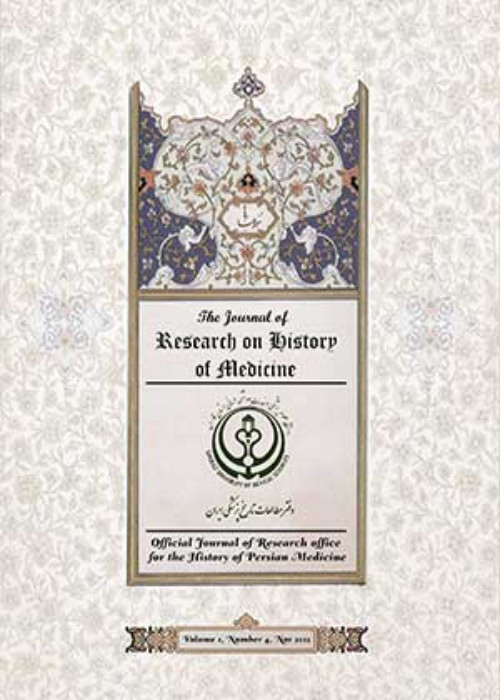A Comparison of Ethical Components in the Works of Tabari, Rahawi, and Razi in the Field of Medical Ethics
Author(s):
Article Type:
Research/Original Article (دارای رتبه معتبر)
Abstract:
Medicine, as one of the most important branches of science, developed significantly in the Abbasid era (656-132 AH). In addition to writing medical texts and treating patients, Muslim physicians also paid close attention to medical ethics, presenting the physician’s responsibilities, along with the treatment of the patient according to the teachings of the Holy Qur’an and the Prophet traditions. The medical ethics of this era, extracted from the works of physicians of the Abbasid era, comprised various components and principles. In this research, ethical components from the perspective of Tabari, Rahawi, and Razi are studied, compared, and analyzed.This study has been conducted by referring to the texts of the Abbasid era, with a special emphasis on medical texts. Having the objective of the present research in mind, the researchers employed the content analysis method in analyzing the collected data.The most important ethical components of physicians of this period comprise confidentiality, responsibility, and good morals. Components, such as confidentiality and responsibility, are almost on the same level of importance, the elements representing doctors’ commitment to the lives of the patients. That of good morals, however, although crucial in the first stages of treatment, has been less paid attention to by the physicians of this age.While writing the first independent medical work, Tabari heeded the ethical aspects of this profession. Razi also paid a lot of attention to ethics in the clinic and considered it necessary to regard the patients’ condition during the course of treatment. However, the first independent work in the field of medical ethics, taking a comprehensive view of the field, was written by Rahawi. Comparing the ethical components found in the works of the mentioned physicians shows that the frequency of the component confidentiality in Razi, Rahawi, and Tabari’s works is about 51%, 40%, and 9%, respectively. Regarding the component of responsibility, Razi and Tabari have paid more attention (59% and 32%) than Rahawi, with an average of 9%. However, regarding good morals, Rahawi with an average of 59% stands in the first place, Razi with 28%, and Tabari, with 13%, in the second and third place, respectively.
Keywords:
Medical Ethics , Tabari , Rahawi , Razi , Islam , Physicians
Language:
English
Published:
Journal of Research on History of Medicine, Volume:11 Issue: 1, Feb 2022
Pages:
43 to 56
magiran.com/p2399288
دانلود و مطالعه متن این مقاله با یکی از روشهای زیر امکان پذیر است:
اشتراک شخصی
با عضویت و پرداخت آنلاین حق اشتراک یکساله به مبلغ 1,390,000ريال میتوانید 70 عنوان مطلب دانلود کنید!
اشتراک سازمانی
به کتابخانه دانشگاه یا محل کار خود پیشنهاد کنید تا اشتراک سازمانی این پایگاه را برای دسترسی نامحدود همه کاربران به متن مطالب تهیه نمایند!
توجه!
- حق عضویت دریافتی صرف حمایت از نشریات عضو و نگهداری، تکمیل و توسعه مگیران میشود.
- پرداخت حق اشتراک و دانلود مقالات اجازه بازنشر آن در سایر رسانههای چاپی و دیجیتال را به کاربر نمیدهد.
In order to view content subscription is required
Personal subscription
Subscribe magiran.com for 70 € euros via PayPal and download 70 articles during a year.
Organization subscription
Please contact us to subscribe your university or library for unlimited access!


